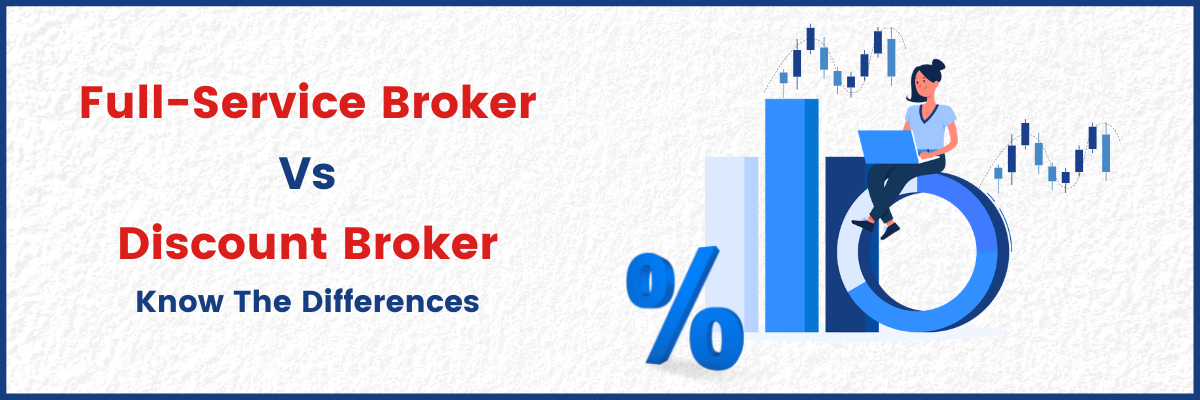Stocks are the class of an asset that have the potential to beat inflation and deliver solid returns in the long run. However, to make the most of them, it is vital to select a market intermediary or broker, who will combine your hard-earned money with your investment objectives and channelize them in the right direction.
You can either opt for full-service brokers such as GEPL Capital that offers a broad, value-added portfolios or the much leaner, cost-effective solutions often provided by discount brokers.
However, before you choose, you need to have a thorough understanding of there features and benefits to make an informed decision.
Full-service broker VS discount broker: By definition
Like the name suggests, full-service brokers are also known as traditional brokers and offer a comprehensive bouquet of services to cater to your financial needs, like what we do at GEPL Capital. Along with providing a stock trading platform, a full-service broker also offers research and advisory, investment banking, sales and asset management under one umbrella.
Coupled with this, they also offer services like wealth management and tax advisory services to help you leverage your assets and save taxes on the incurred profits in the best ways possible.
Full-Service Brokers like GEPL Capital are your ideal choice if you are looking for guidance to explore the market. Apart from high-quality inputs, we also provide you with a robust customer service infrastructure. We have a solid network of branches across the country and a team of trained & designated relationship managers to offer you personalized services.
On the other hand, since stock trading has gone online, this has led to the advent of a new class of brokers who are known as discount brokers. They are getting widespread attention from investors on account of there low, fixed brokerage plans wherein they charge a fixed fee irrespective of the trade value or money you invest in.
Unlike traditional brokers, discount brokers as the name suggests, offer limited services at a cheaper price. They offer there services online and have a very limited physical presence which helps them save resources on employees and infrastructure. The services offered by discount broking companies vary but most of them do not provide research services, IPO application services and investment services in Mutual Funds, Bonds, FDs etc. This also helps them save money on licensing and resources.
Difference between discount broker and full-service broker – What is the actual difference between both the segments?
| Factors | Full service broker | Discount broker |
| Brokerage | Charged on percentage basis. | Charge a flat fee. |
| Service | Bundle of services. Advisory service, investment service, asset management, tax planning and alot more. | Online trading platform with exclusive features along with basic analytical investment tools. |
| Presence | Both online and offline. Various offices and branches across the nation. | Usually only online presence. |
Research | They have dedicated research departments and experts for advisory. | No such departments. |
| Customer support | Face-to-face devoted customer service available at various branches. | Online customer support. |
Concluding Thoughts
There is no one size fits all approach when it comes to selecting a full-service broker vs discount broker. It entirely depends on your investment goals and service requirements. Make sure you complete your research and select the broker who helps you achieve the desired level of profitability in your investments while choosing full-service broker vs discount broker.
The type of service you want to avail will mostly depend on the size of the capital you are ready to invest. It also depends on the experience, knowledge and overall financial maturity of the trader. The current trend that we are witnessing, young tech-savvy investors are flocking to discount brokers while traders with significant capital are opting for full-service brokers for a well-rounded investment portfolio and better trading opportunities and returns.





